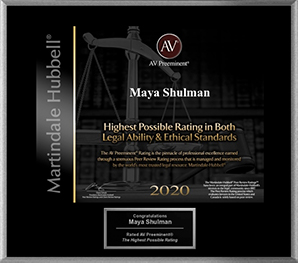
Property Division in Divorce
The common issues surrounding nearly all divorce cases include alimony, property division, and tax consequences. But the situation can get a bit more complicated when a couple owns very high-value assets.
When a couple has high-value assets, it usually means that they own a range of different assets and have various income sources. In the event of a divorce, either party would need assurance that there is complete disclosure about the other spouse’s debts and assets, particularly in community property states such as California.
Such divorces cases, i.e. those involving high stakes, require the consideration of several crucial factors. Some of them include the following:
Identifying, Categorizing, And Calculating Assets
One of the main difficulties in high-stake divorce cases is to pick out the key assets and put them in the proper categories. As per law, almost all assets that are acquired prior to marriage are separated from the other assets, but this isn’t the case with some specific assets owing to value appreciation. You will find that some couples who own high-stake assets might decide to formulate a prenuptial agreement for applying property rights and minimizing complexities in case there is a divorce.
In California, both married partners are usually given equal entitlement to marital property, income, and other assets, irrespective of which partner earned the asset. The California Family Code Section 2640 offers couple reimbursement rights with respect to independent property contributions towards the community property. It also offers reimbursement rights for any community property that is contributed to a spouse’s individual property. This code might sound slightly complicated, and this is why most attorneys prefer the ‘Moore/Marsden calculation’, which makes it easier to calculate the real estate interest of each party when a spouse purchased the property before marriage.
It is usually difficult to come up with a simple Moore/Marsden calculation when dealing with actual divorce proceedings, especially in high-stakes divorce cases. This is because it is common for couples to make improvements to all their assets, including the sum. They might even modify the title which will ultimately change the entire equation.
Tax Consequences In High-Stake Divorces
Most people show little or no interest in tax-related subjects in a divorce case. However, it is inevitable for key tax issues to arise in the division of high-stake assets including property. For instance, a partner who receives some assets might be taxed for distribution. It is common for spouses in a high-stakes divorce case to ignore tax consequences of various assets. But it is recommended that such couples spend time with an experienced lawyer as he/she could simplify the process for them.
Finding The Right Lawyer For A High-Stake Divorce
As mentioned earlier, high-stake divorces can be quite complex and may take a lot more time than standard divorce cases. This is primarily due to the comprehensive processes of assessment, categorization, and asset division that may take up an unlimited amount of time. Hence, it is crucial to formulate transient orders for custody matters, spousal maintenance and legal expenses. Such complications might even lead some couples to consider the alternative of undisputed divorce.
The lawyer and law firm hired for a high-stakes divorce plays a critical role in the final outcome. High-stake clients typically need an attorney who is capable of managing the specifics. In fact, property division in high-stake divorce cases is often managed by a team rather than a single lawyer. The lawyer hired for such a case should have the expertise to gather a team which may also include a skilled property-valuation expert.
SFLG
Maya Shulman, Esq.
Shulman Family Law Group







